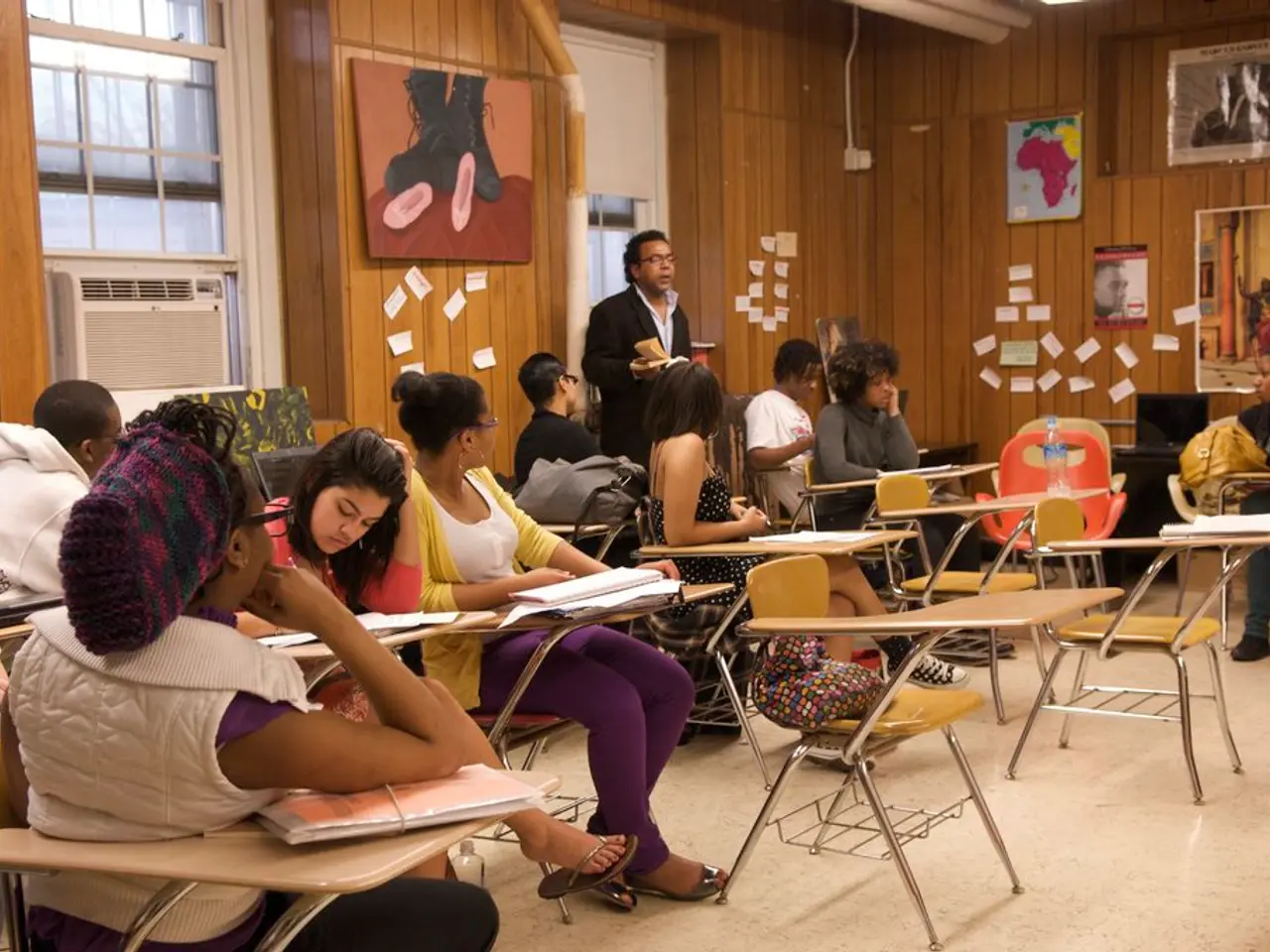Increasing instances of 'Digital Amnesia' are witnessed as individuals begin to rely more heavily on the internet for memory storage
In today's digital age, the convenience of instant knowledge has led to a phenomenon known as digital amnesia. A study by Kaspersky Lab reveals that over 91% of Americans now use the Internet as a mental extension, relying heavily on digital devices and search engines to store and retrieve facts [1]. This reliance, however, has its drawbacks.
Research suggests that the less one uses their brain, the weaker it becomes, according to neuroscience [2]. Frequent multitasking with digital devices can overstimulate the brain, reducing focus and memory encoding effectiveness [1]. Over one in four respondents confessed they immediately forget whatever they just looked up, and half of the people surveyed admitted they consult the Internet before even attempting to recall a fact on their own [1].
The problem arises when we offload important information to the digital void without making any attempt to internalize it. This trend, named digital amnesia, refers to the habit of offloading the responsibility of remembering things onto devices [3]. The easier it is to access information, the less effort we put into understanding or remembering it, which can weaken long-term memory retention and cognitive skills such as critical thinking, reasoning, and analytical inference [1][2][3].
Long-term consequences of severe and chronic digital amnesia may contribute to cognitive decline and increase risks of disorders like dementia and Alzheimer's disease, as the brain is less exercised in memory formation. This can lead to anxiety, mood changes, and false memory formation (confabulation) [2].
In social and educational contexts, digital amnesia can lower productivity and hinder genuine learning since constant searching online prevents deeper mental engagement with new information [2]. Relationships may also be affected because memories are increasingly recorded digitally (photos, messages), which can reduce their authenticity and emotional resonance [2].
To practice conscious memory hygiene in a digital world, individuals should actively engage in mental recall exercises rather than outsourcing memory entirely to devices. Limit multitasking to reduce cognitive overload and improve focus. Use technology as a collaborative tool, not a replacement, balancing AI assistance with personal cognitive effort [3]. Employ strategies such as repeating and rehearsing information, note-taking by hand, and creating meaningful connections to strengthen neural pathways [1]. Set intentional habits to disconnect and engage with information without immediate digital backup, fostering stronger memory formation.
Conscious memory hygiene means being aware of when to rely on technology and when to challenge your brain actively to retain and process information, maintaining cognitive health and learning abilities despite the convenience of digital tools [1][3][4]. By adopting these practices, we can ensure that our brains remain sharp and our memories continue to serve us well in this digital age.
References:
[1] Smallwood, J., & Baddeley, A. D. (2015). Attention and the brain. Oxford University Press. [2] Wimber, M. (2015). Making it stick: The science of successful learning. McGraw-Hill Education. [3] Bauer, P. J. (2014). The memory chip: How the science of memory explains the events of our lives. W. W. Norton & Company. [4] Brown, P. C., & Kulik, J. A. (1978). The role of retention testing in enhancing the effectiveness of teaching. Review of Educational Research, 48(3), 294-314.
Cybersecurity measures become increasingly important as reliance on digital devices surges, with the potential risks in storing personal information. In health-and-wellness, mental-health, and lifestyle contexts, technology should not replace mindful self-reflection and memory practices. Incorporating science-backed strategies like rehearsing information, note-taking, and conscious disconnection from digital devices can foster stronger memory formation and cognitive skills. Technology, when employed thoughtfully and as a collaborative tool, can strengthen our lives and learning experiences without diminishing our cognitive abilities.




